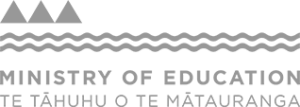CEO Update
Kia ora,
July to September 2023 was Netsafe’s busiest ever quarter for complaints assessed as falling within the scope of the Harmful Digital Communications Act. August was the first time Netsafe received more than 600 complaints under the Act in a single month.
Netsafe is NZ’s best Contact Centre in the Not-for-Profit Sector
In September, Netsafe was recognised for providing outstanding customer service at the annual New Zealand Contact Centre Awards 2023. These nationwide awards are the biggest show in town for NZ’s Contact Centre industry and cover all industries. Established in 1997, a team of specially selected industry judges contact businesses throughout New Zealand anonymously, surveying the quality of service delivered by their contact centres over the telephone, email and internet.
Netsafe was delighted to be awarded the best Contact Centre in the Not-for-Profit sector. This award validates Netsafe’s commitment to putting customers at the heart of all that we do, and recognizes the Netsafe’s team’s dedication and commitment to providing exceptional service to people impacted by online harm.
Cyberbullying in New Zealand – $1b cost in 2023
Also in September, Netsafe released ground-breaking NZ research into the economic impact of cyberbullying on individuals, employers and broader institutional systems. We estimate the societal cost is $1,071m a year, up from $444m Netsafe reported in 2018. Most of it remains in the social rather than the private realm. Meaning the costs and benefits are best borne in a collective approach.
Beyond the emotional and psychological toll experienced by people at the receiving end of harm, the economic impacts are significant. From lost productivity at work and increased healthcare costs to legal expenses and withdrawal from participating online. Through this research, we shine a light on the hidden costs of online harm. Awareness is the first step towards change, and with this knowledge, we can begin to make changes to create safer spaces for everyone.
Scams research
Netsafe partnered with the Global Anti-Scam Alliance (GASA) to analyse the impact of scams in NZ. The report revealed that nearly two-thirds of Kiwis (62%) encounter a scam once a month, and over half (55%) experienced more scams in the last 12 months than previously.
- Scams are appearing in multiple ways through text messages, social media, and instant messaging apps. The most frequent communication channel used was email (62%) where a scammer would pose as a trustworthy source the victim would know.
- Gmail and Facebook are the most used platforms by scammers, with Outlook, Instagram and WhatsApp taking 3rd to 5th place.
- People are being unwittingly approached through common platforms they use every day, which makes it harder to identify a scam because it looks like a normal email, text message or social media post.
- Most New Zealanders can easily spot a scam when it appears as a ridiculous message filled with bad punctuation and spelling, asking for money. But scammers have become much more sophisticated.
The report confirmed Netsafe’s data which shows the most common scams in New Zealand were identify theft, followed by shopping and investment scams. Netsafe’s experience is that these scams are not victim-less and can cause significant emotional impact for the victim.
Netsafe is calling on the new National-led government to follow Australia’s lead to establish an anti-scam centre, focussed on victim remediation, education and prevention.
Ngā mihi,
Brent Carey
CEO, Netsafe
Report Contents
Previous quarterly reports
Quarterly Results
Between July – September 2023, Netsafe received 8,278 reports overall.
Top taxonomy descriptions included:
Phishing • Sextortion • Non-existant products scams • Harassment • Intrusion • Non-existant services scams • Sensitive information released • Credit / Debit Cards • Prize promotion / sweepstakes scam • False allegation
TOTAL REPORTS
PERSONAL HARM COMPLAINTS
SCAM & FRAUD REPORTS
Reports by age group
2%
00-12
10%
13-17
5%
18-21
34%
22-40
35%
41-64
13%
65+
Reports by region
Reports by gender
58%
FEMALE
1%
GENDER DIVERSE
41%
MALE
Personal Harm Reporting
Reported breaches under the Harmful Digital Communications Act*
Between July and September 2023, Netsafe received 1,738 personal harm reports. The top personal harm categories under the Harmful Digital Communication Act for the quarter were:
* Cases often involve breaches of more than one communication principle
Scam and Fraud Snapshot
Between July – September 2023, Netsafe received 542 reports with losses totalling:
LOSSES ($)
Education, Partnership & Impact
Online harm prevention and public awareness campaign activity:
Netsafe built on our new online learning platform for schools with the launch of a new suite of resources for families and young people, supported by Meta. The six interactive modules include safety guides for platforms like Instagram and Facebook, an introduction to the Metaverse and media literacy created in partnership with AUT’s Dr Helen Sissons.
Our annual Netsafety Week in July included online webinars, in-person events in retirement villages nationwide and the launch of the Little Black Book of Scams for seniors as well as the CheckNetsafe website to help you decipher if a website is legitimate.
To mark Te Wiki O Te Reo Māori, we created a new translated glossary of online harm scenarios for families – available to download on our website among our growing set of translated materials.
During the FIFA Women’s World Cup in New Zealand, we supported the It’s a Penalty campaign with partners Safeguarding Children, using our online ads to direct the public to free child safeguarding training hosted by Sport NZ.
In August Netsafe launched our Sextortion campaign to raise awareness of the sharp increase in reports (237% in one year). Newspaper and online ads reached parents and whānau while YouTube and Spotify reached over 100,000 teenagers. Media coverage was widespread including spotlight TV features on Seven Sharp and a documentary special “Paddy Gower Has Issues” aired in October.
Submissions and Advocacy
Netsafe responds to public consultations or may otherwise advocate on issues relevant to our work. This quarter’s submissions can be found via the following links:
18 August: Netsafe response to the Safer Online Services and Media Platforms Consultation
About Netsafe
Netsafe is an independent non-profit organisation with an unrelenting focus on online safety. We keep people safe online by providing free support, advice and education. Visit netsafe.org.nz for useful resources or call 0508 638 723 seven days a week for help with an online incident.
Find out more at www.netsafe.org.nz
Report Data
The data in this report represents the data available at the end of the quarter. Information related to the reports made to Netsafe reflect high-level trends and does not include easily identifiable information about specific reports/incidents.
If you have any queries about the information in this report, please email [email protected]





